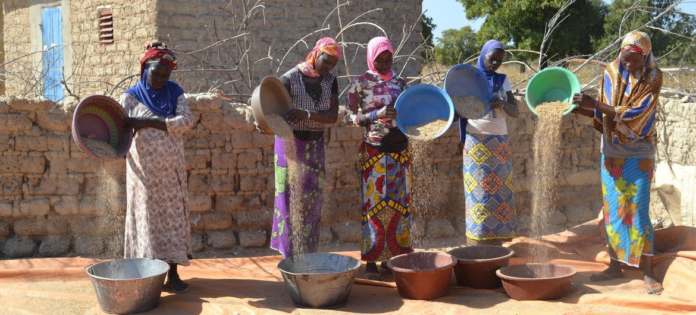Nigeria, with its vast land resources and diverse agro-ecological zones, stands at a pivotal position in Africa’s agricultural landscape. The country’s agricultural sector not only provides employment for a significant portion of its population but also contributes significantly to its GDP. However, despite its immense potential, Nigeria faces challenges such as low productivity, limited market access, and the adverse impacts of climate change, hindering its ability to fully harness its agricultural resources. The significance of Nigeria’s agricultural potential extends beyond its borders, particularly concerning food security in Africa. As one of the most populous countries on the continent, Nigeria’s ability to ensure food security domestically directly affects the overall food availability and affordability in the region. Additionally, Nigeria’s agricultural success could serve as a model for other African nations striving to enhance their food production capabilities and achieve greater food security.
This study delves into strategies aimed at unlocking Nigeria’s agricultural potential as a means to foster food security for Africa. By examining current agricultural practices, identifying areas for increased production, addressing challenges, and highlighting successful interventions, this study aims to provide valuable insights into enhancing Nigeria’s food production capacity. Moreover, the study outlines recommendations for sustainable agricultural practices and regional cooperation to ensure long-term food security for Nigeria and the African continent. Nigeria’s agricultural sector boasts a rich diversity of crops cultivated across different regions, with staples such as cassava, yams, maize, rice, and sorghum forming the cornerstone of the Nigerian diet. Additionally, cash crops like cocoa, oil palm, and rubber play a significant role in the economy.
Traditional farming methods, characterized by manual labor and rudimentary tools, remain prevalent in many parts of Nigeria. However, there is a growing acceptance of mechanization and modern agricultural practices, particularly in commercial farming and for cash crops. Despite its potential, Nigeria’s agricultural productivity lags behind countries with similar agro-ecological conditions. Several factors contribute to this, including limited access to inputs such as improved seeds, fertilizers, and pesticides, as well as inadequate irrigation infrastructure. Challenges such as land degradation, deforestation, and climate change further exacerbate productivity constraints, along with poor market access and post-harvest losses. To unlock Nigeria’s agricultural potential, several strategies can be employed. Firstly, there is a need to expand agricultural land use sustainably by promoting land use planning and sustainable land management practices. Additionally, investing in irrigation infrastructure can mitigate the impact of climate change and ensure more reliable crop yields throughout the year.
Furthermore, the adoption of modern farming technologies, including improved seeds, fertilizers, and pest control methods, is essential for enhancing productivity. Governance structures that prioritize transparency and accountability in natural resource management are also crucial for effective implementation of agricultural policies. Case studies such as the Growth Enhancement Support (GES) scheme demonstrate the importance of targeted interventions and the use of technology in improving farmers’ access to agricultural inputs. Similarly, sustainable agricultural practices, exemplified by initiatives like the Songhai Center in Benin, underscore the importance of integrated farming systems for resource efficiency and environmental sustainability.
Improving infrastructure and logistics, particularly transportation networks and storage facilities, is vital for connecting farmers to markets and reducing post-harvest losses. Moreover, enhancing market access and providing farmers with market information can boost competitiveness and increase incomes. Research and innovation play a pivotal role in improving agricultural productivity and sustainability. Collaboration at regional and international levels, facilitated through organizations like ECOWAS and the AU, can foster technology transfer, market access, and knowledge sharing among countries.
In conclusion, Nigeria holds immense potential to contribute to food security in Africa, but overcoming existing challenges is imperative. Sustainable agricultural practices, improved infrastructure, and regional cooperation are key to unlocking Nigeria’s agricultural potential and ensuring long-term food security for the continent. By implementing recommendations outlined in this study, Nigeria can enhance its food production capacity, uplift livelihoods, and contribute to food security and sustainability in Africa.
















 The African Research (AR) Index is a comprehensive scholarly directory and database focused explicitly on journal publishers that publish and disseminate African research.
The African Research (AR) Index is a comprehensive scholarly directory and database focused explicitly on journal publishers that publish and disseminate African research.

